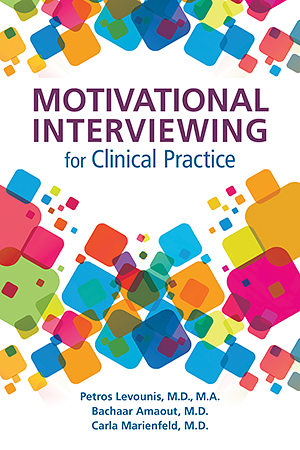Sections
Excerpt
Motivational interviewing (MI) is one type of psychotherapy; it has been particularly well studied. In this chapter, we will 1) review the research focusing on MI, including if and how it works; 2) recommend steps toward becoming a competent MI clinician and/or researcher; 3) review how outcomes are measured to assess change when using MI; and 4) discuss implementing MI in treatment settings based on research findings.
Access content
To read the fulltext, please use one of the options below to sign in or purchase access.- Personal login
- Institutional Login
- Sign in via OpenAthens
- Register for access
-
Please login/register if you wish to pair your device and check access availability.
Not a subscriber?
PsychiatryOnline subscription options offer access to the DSM-5 library, books, journals, CME, and patient resources. This all-in-one virtual library provides psychiatrists and mental health professionals with key resources for diagnosis, treatment, research, and professional development.
Need more help? PsychiatryOnline Customer Service may be reached by emailing [email protected] or by calling 800-368-5777 (in the U.S.) or 703-907-7322 (outside the U.S.).



